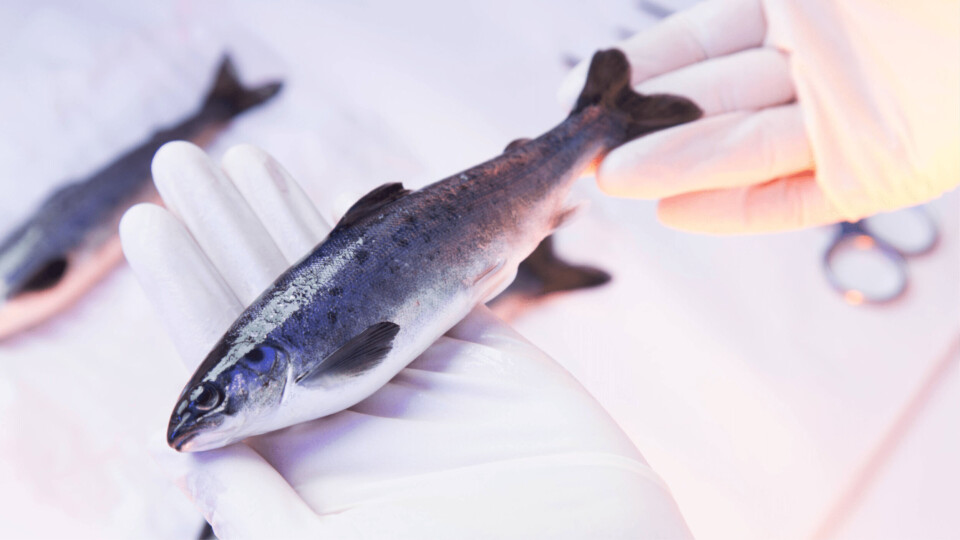
SuperSmolt maker plays down significance of BioMar court ruling
Another shot has been fired in the long-running conflict between fish health products supplier STIM and feed giant BioMar over the latter’s right to sell a specialist feed to aid salmon smoltification.
STIM chief executive Jim-Roger Nordly today played down the importance of a county court ruling allowing BioMar to sell its Intro Tuning feed, which STIM (formerly Europharma) claims is a copy of its patented SuperSmolt FeedOnly product.
In a press release, Nordly disputed a statement last week by BioMar Norway chief executive Håvard Jørgensen that “the decision from the court is in accordance with the European Patent Office’s (EPO) understanding of STIM’s patent”.

A ‘legal filbuster’
“Jørgensen has no basis for making such a claim. In reality, BioMar succeeded with nothing more than legal filibuster and a reasoning that flies directly in the face of the work that EPO does to protect important innovations against unlawful exploitation,” said Nordly.
The STIM boss said SuperSmolt technology comprised four basic elements: tuned levels of sodium, calcium and magnesium as well as free amino acids that together work to induce smoltification.
SuperSmolt FeedOnly contain L-Tryptophane which is the most potent of several amino acids that may be used. This was also the only amino acid covered by the first product patent for SuperSmolt FeedOnly. The additional patent granted by EPO this summer, included a range of other amino acids, in accordance with STIM’s original patent application from 2014.
Copying sample
“In our first lawsuit in the spring of this year, BioMar admitted in Oslo City Court that their first version of the feed Intro Tuning was developed by simply getting a hold of a sample of our feed, analysing it in a lab and copying it,” said Nordly.
“BioMar was predictably found guilty of this in court. Their next move was to replace L-Tryptophane with another amino acid to escape responsibility with regard to the product patent, and continuing their sales knowing that their customers could be legally exposed with regard to the original SuperSmolt patent from 2008 by using the feed.
“And now, when EPO has expanded the list of amino acids under patent protection, their answer is to argue that the total amount of free amino acids is what should be looked upon.”
Amino acids
Nordly said that by adding free amino acids to compensate for what he said was an insufficient nutritional level, BioMar claimed its feed was above the levels described in the patent.
“STIM of course disagree with this understanding, but BioMar found support for this strategy in Oslo County Court. That has absolutely nothing to do with ‘EPO’s understanding of STIM’s patent’,” said Nordly.
He added that SuperSmolt FeedOnly was an entirely different approach to smoltification to adding salt to feeds, which BioMar had trialled.
“Everybody familiar with this business knows that these old salt feeds did not work to smoltify fish,” claimed the executive.
STIM said SuperSmolt FeedOnly had its roots in the discovery by Harvard University scientists of Calcium Sensor Receptors (CaSR), one of whom established the company MariCal and succeeded in the development of the original SuperSmolt method.
Great impact on fish health
STIM bought the global rights to the technology, and then carried out six years of research to make the feed the only carrier of all the active ingredients, something MariCal hadn’t been able to do.
“Except for the introduction of oil-based vaccines, I can’t think of any innovation that has had a greater impact on the health and welfare of farmed salmon. Poor smolt quality was the biggest cause of post transfer mortality in Norway just a few years ago. This is no longer considered a problem. For BioMar to claim that SuperSmolt FeedOnly has no value as an innovation is as insulting as it is wrong,” said Nordly.
STIM said it will continue to defend the rights to SuperSmolt technology from unlawful exploitation by BioMar and other feed producers.






















































